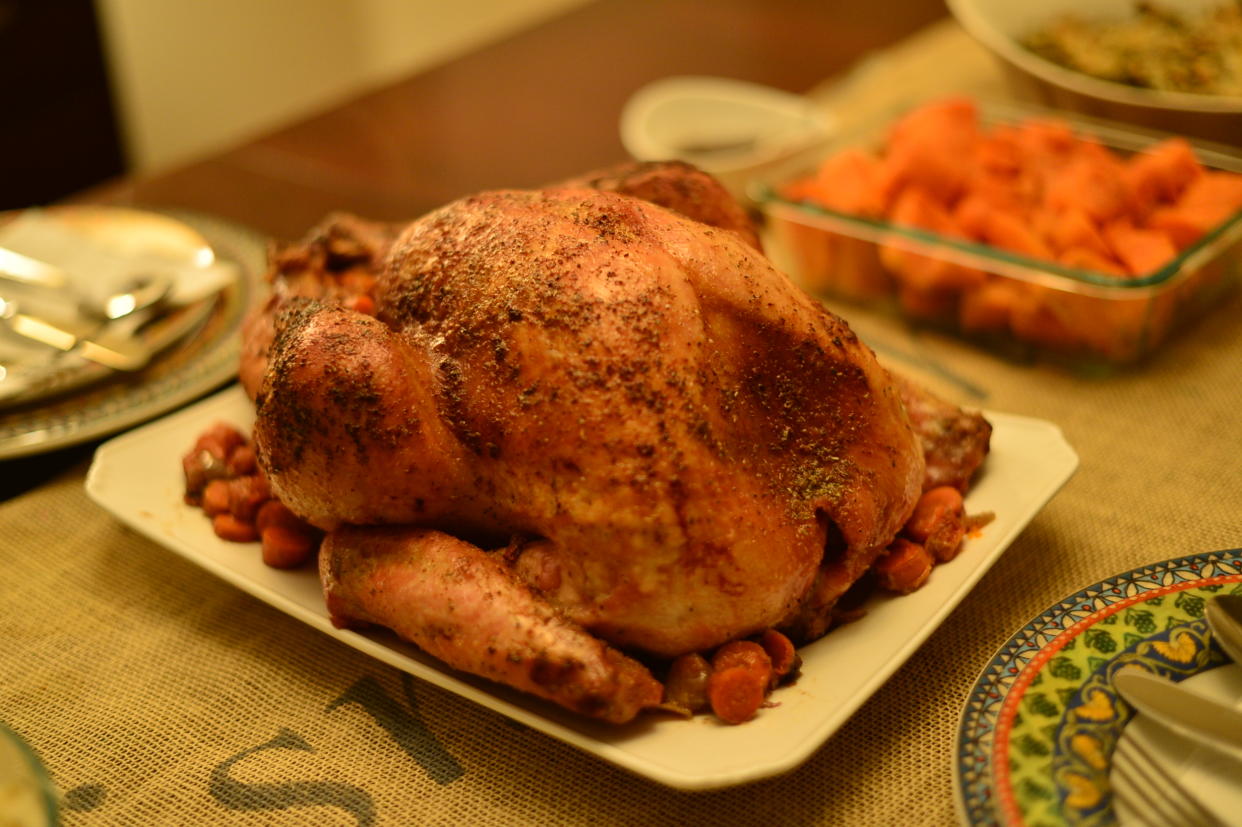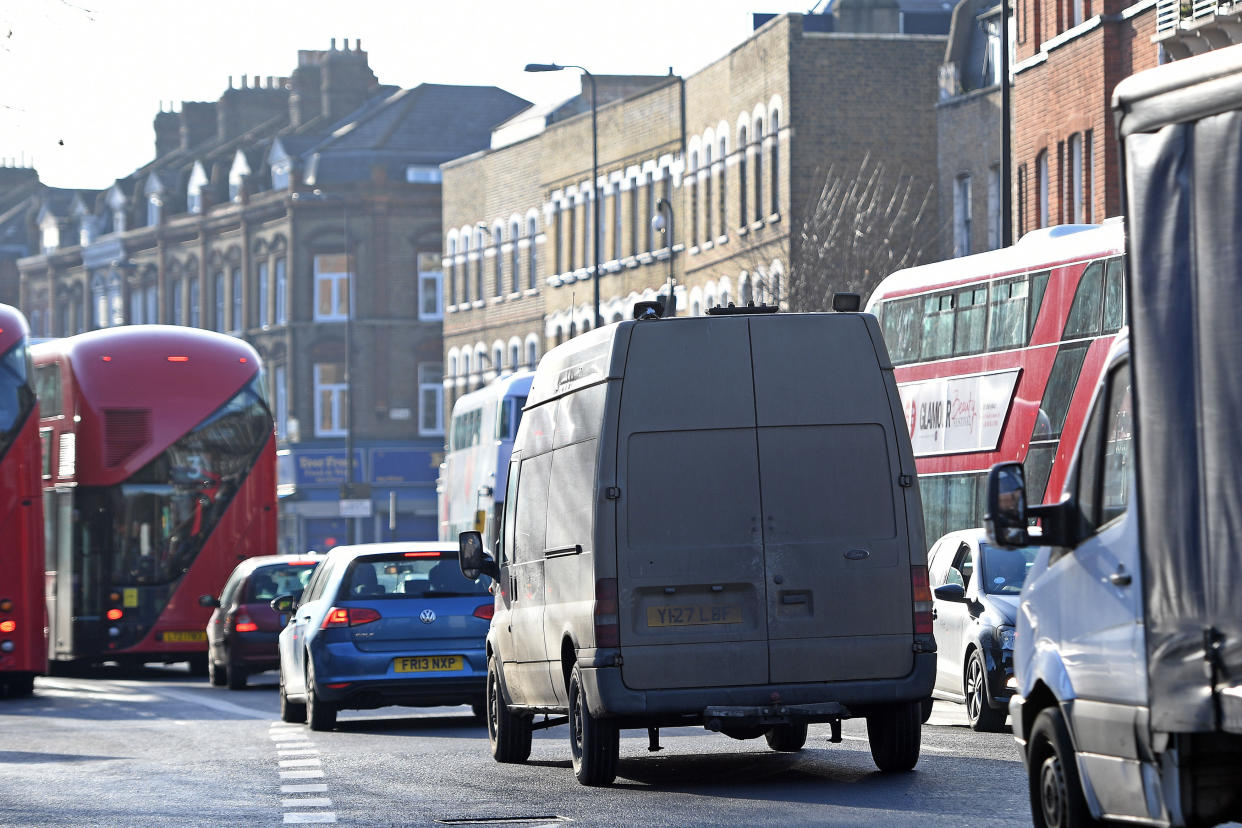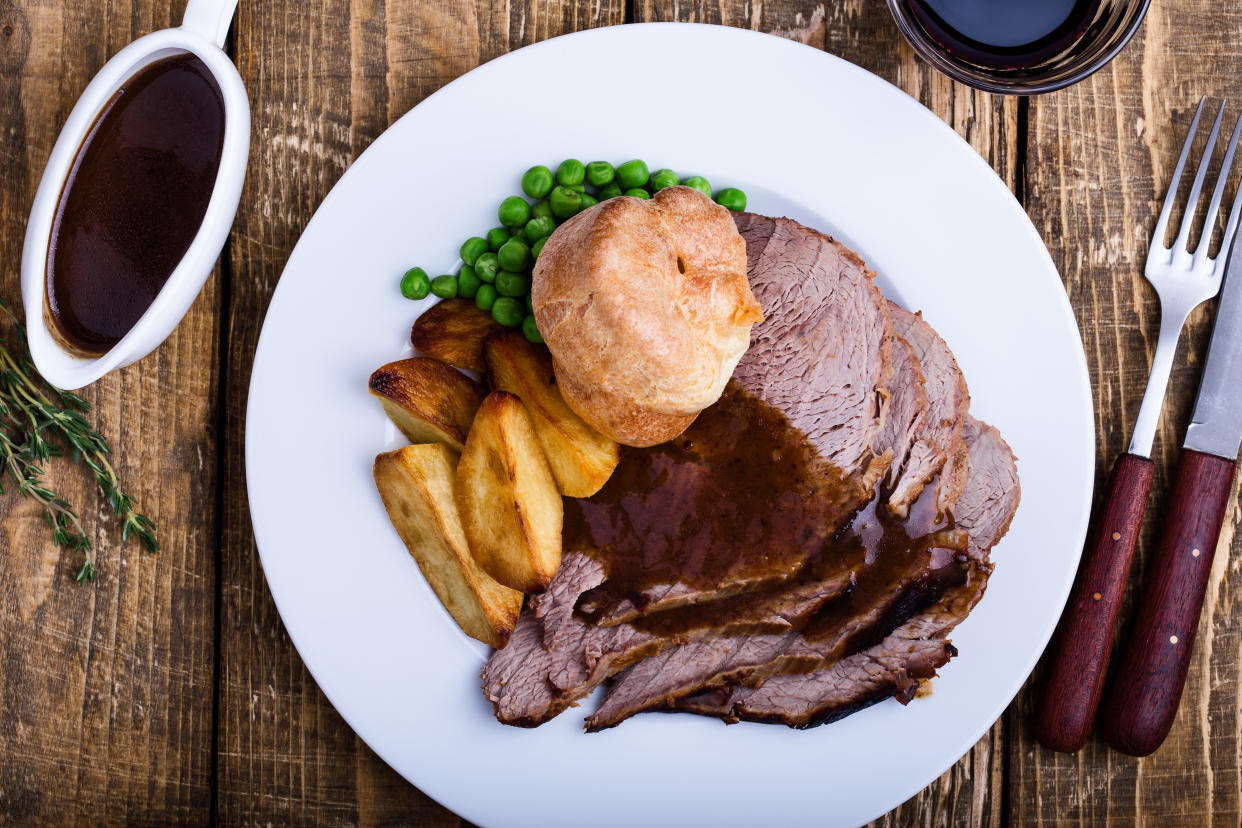Cooking a roast dinner makes your home as polluted as inner city London

Cooking a roast dinner produces levels of dangerous airborne particles on a par with those found in the world’s most polluted cities, according to reports.
A report in the Times claims roasting a turkey can raise the concentration of smog-like particulate pollution in a home well beyond levels recorded on streets in inner London or Beijing, the most comprehensive study so far of cooking emissions found.
It says turkey dinners cooked on gas stoves, levels of PM2.5 particles, which can travel deep into the lungs, climbed above 200 micrograms per cubic metre.
The peak was 20 times higher than the World Health Organisation (WHO) limit and 13 times higher than the average in central London. “This compares to a very polluted city,” Marina Vance of the University of Colorado Boulder, who led the research, said.

The experiment was the first to use sensors sensitive enough to record the very finest, and therefore most dangerous, particulate matter indoors. PM2.5 particles are implicated in 29,000 premature deaths each year in Britain and Northern Ireland, and long-term exposure is linked to respiratory problems, heart disease and mental illness.
During a busy day of cooking, comparable to a family Christmas Day, PM2.5 levels stayed above the WHO maximum for more than eight hours.
The emissions included sooty “black carbon”, produced by incomplete combustion and linked to cardiovascular disease, cancer and dementia.

Researchers said they had been startled by the levels of even smaller, ultra-fine particles, known as PM0.1, which measure 0.1 micrometres across and can move from lungs to bloodstream.
“They are known to deposit in organs such as the heart, the liver, obviously the lungs, and the brain,” Dr Vance said.
Short exposures from cooking are not directly comparable to long-term exposure in a city. However, Dr Vance urged people to rethink how they cook by opening windows, using extractor hoods and avoiding very hot roasting.
Dr Vance and colleagues fitted a three-bedroom house with advanced sensors to monitor the indoor air quality.
They found that boiling water on a flame contributed to high levels of gaseous air pollutants and suspended particulates.
When they started cooking, levels of indoor pollution rose so rapidly that their instruments needed recalibrating.
To simulate Christmas Day, they prepared a full English breakfast, a vegetable stir fry and roast turkey with stuffing, sprouts, boiled sweet potatoes, and fruit pie.
“The highest emission was when we were roasting brussels sprouts, because of the charring,” Dr Vance said. “When you’re roasting vegetables, that’s going to be a source of black carbon. The joke we’ve been telling ourselves is boil everything, avoid roasting — but it’s too delicious.”
The findings were given on Sunday at the American Association for the Advancement of Science in Washington.


